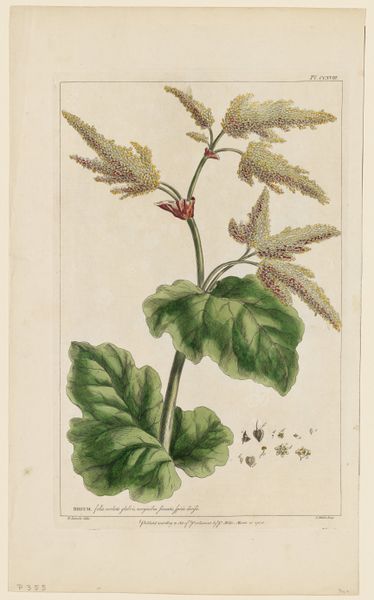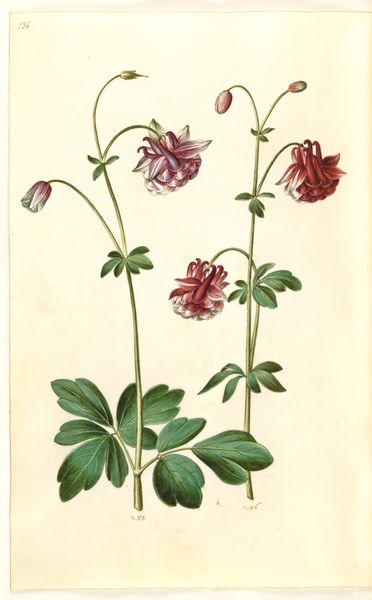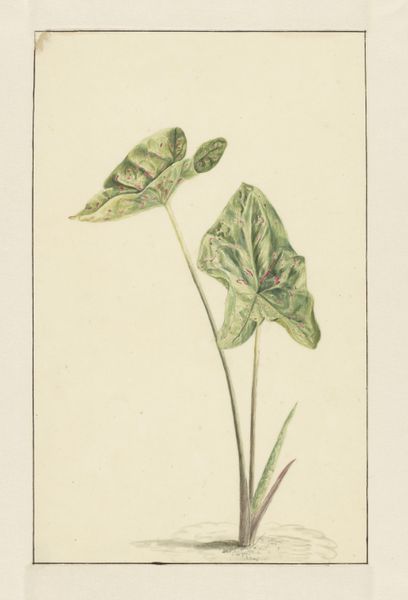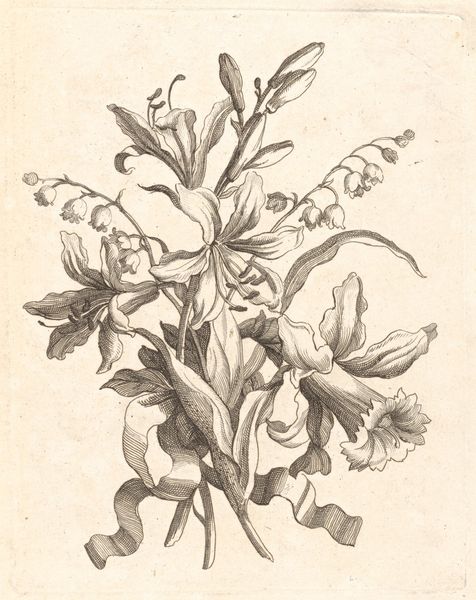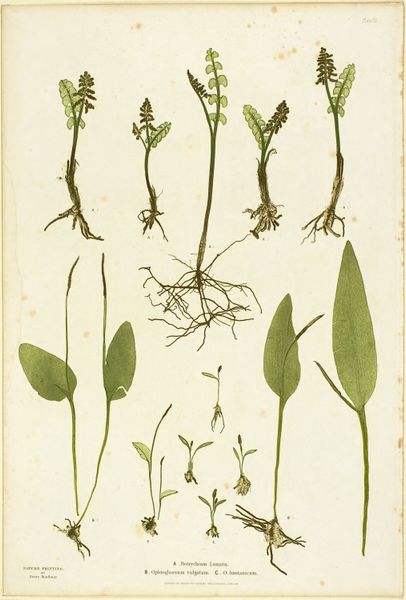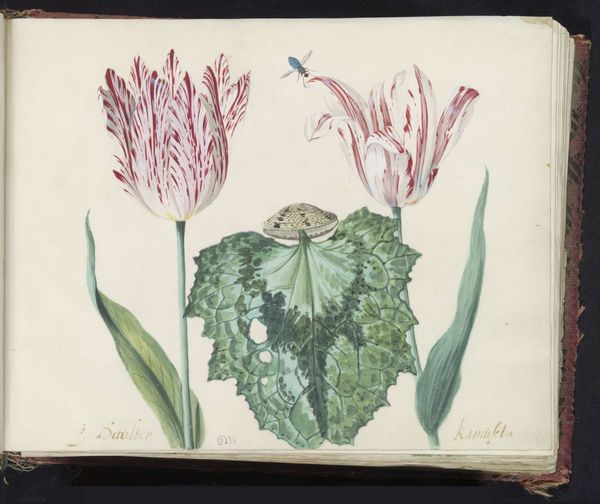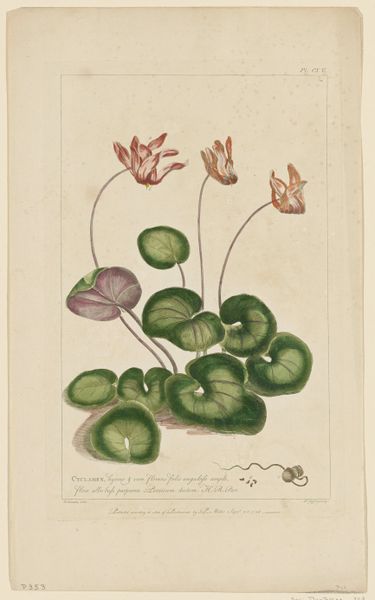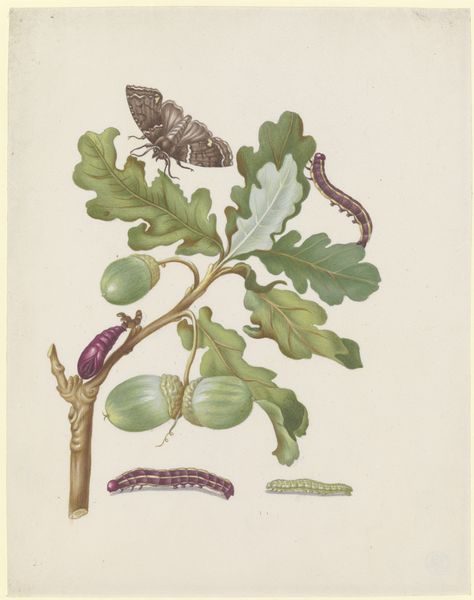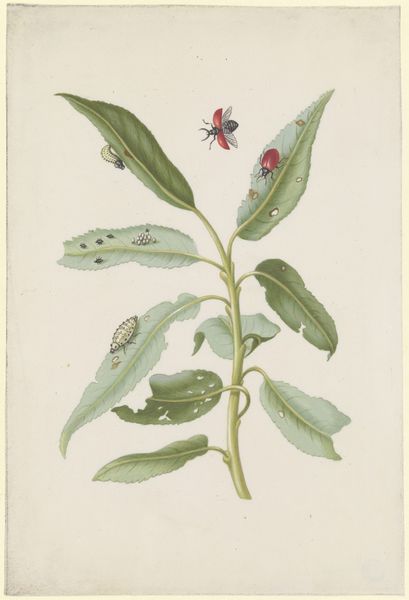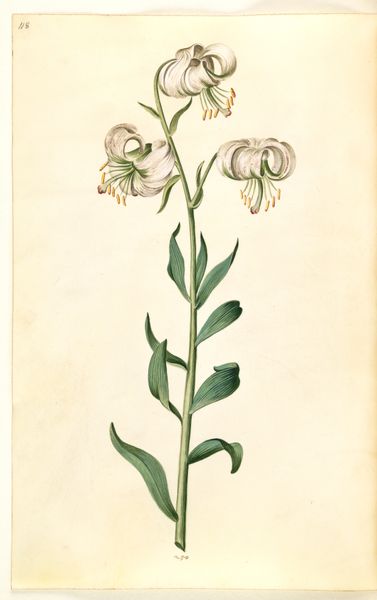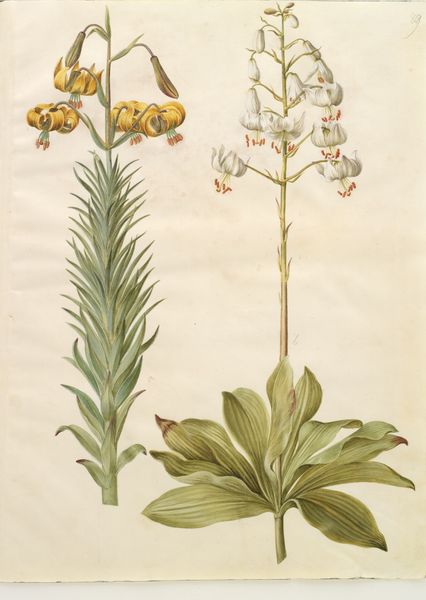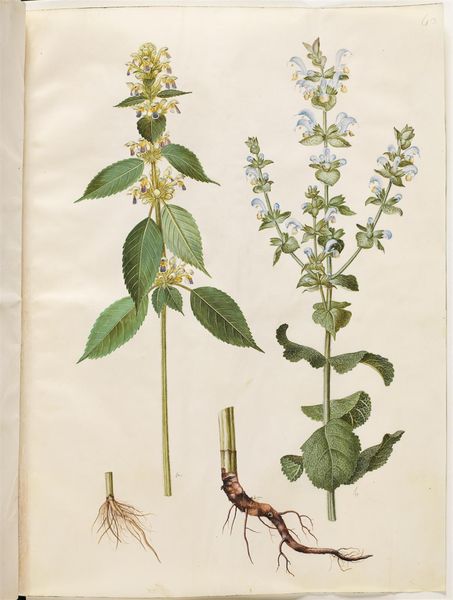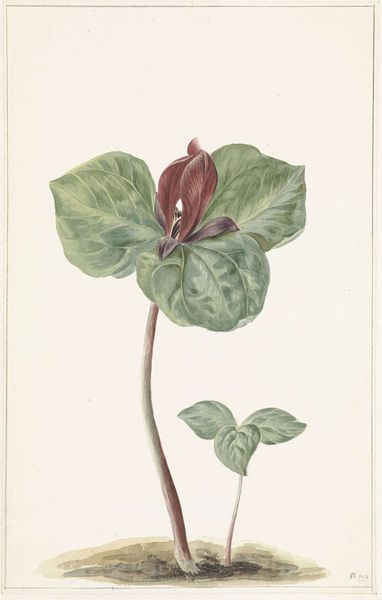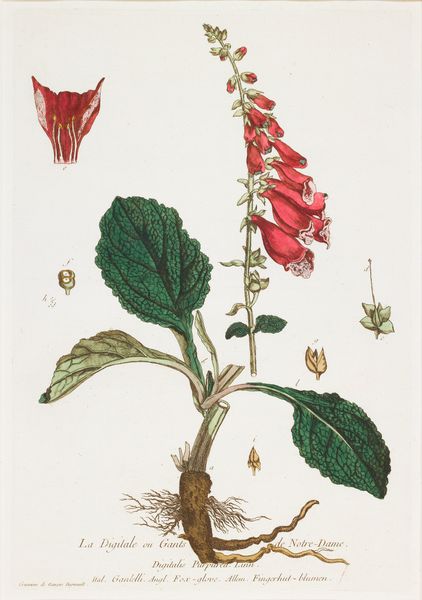
Plantain with Metamorphosis of the Brigh-Line Brown-Eye after 1679
0:00
0:00
drawing, gouache, watercolor
#
drawing
#
baroque
#
gouache
#
watercolor
#
watercolour illustration
#
botanical art
#
watercolor
Copyright: Public Domain
Maria Sibylla Merian made this detailed plantain study with watercolor and gouache. At first glance, the composition appears to be a straightforward botanical illustration, yet the interplay of organic forms and meticulous detail invites closer inspection. Merian intricately renders the plantain, showcasing the life cycle of insects alongside the plant. A caterpillar crawls up one of the flower spikes, while another leaf bears a pupa, and a beetle stands on the bottom left. The varying shades of green, from the pale leaves to the darker shadows, create depth and realism. This metamorphosis is not just about scientific recording. It challenges fixed categories by presenting nature as a dynamic process. Consider Merian's broader artistic and philosophical context. Her focus on metamorphosis reflects broader 17th-century interests in transformation and the natural world. By embedding the life cycle within the plant's form, she challenges us to see nature not as static, but as a site of constant change and interconnectedness.
Comments
stadelmuseum over 2 years ago
⋮
In the text of the Caterpillar Book, published in 1679, Maria Sibylla Merian expressed her pleasure in the fact that, thanks to the pretty green caterpillar – which is difficult to discern at first sight –, she had the opportunity to include an unremarkable weed such as a plantain in her book. In this respect, her book differs from the seventeenth-century florilegia and their concern with splendour and luxury. Yet despite her matter-of-fact scientific approach, she did not dispense with high artistic standards in her depiction of the plant. Her drawings are always scientific illustrations and artworks in one.
Join the conversation
Join millions of artists and users on Artera today and experience the ultimate creative platform.
